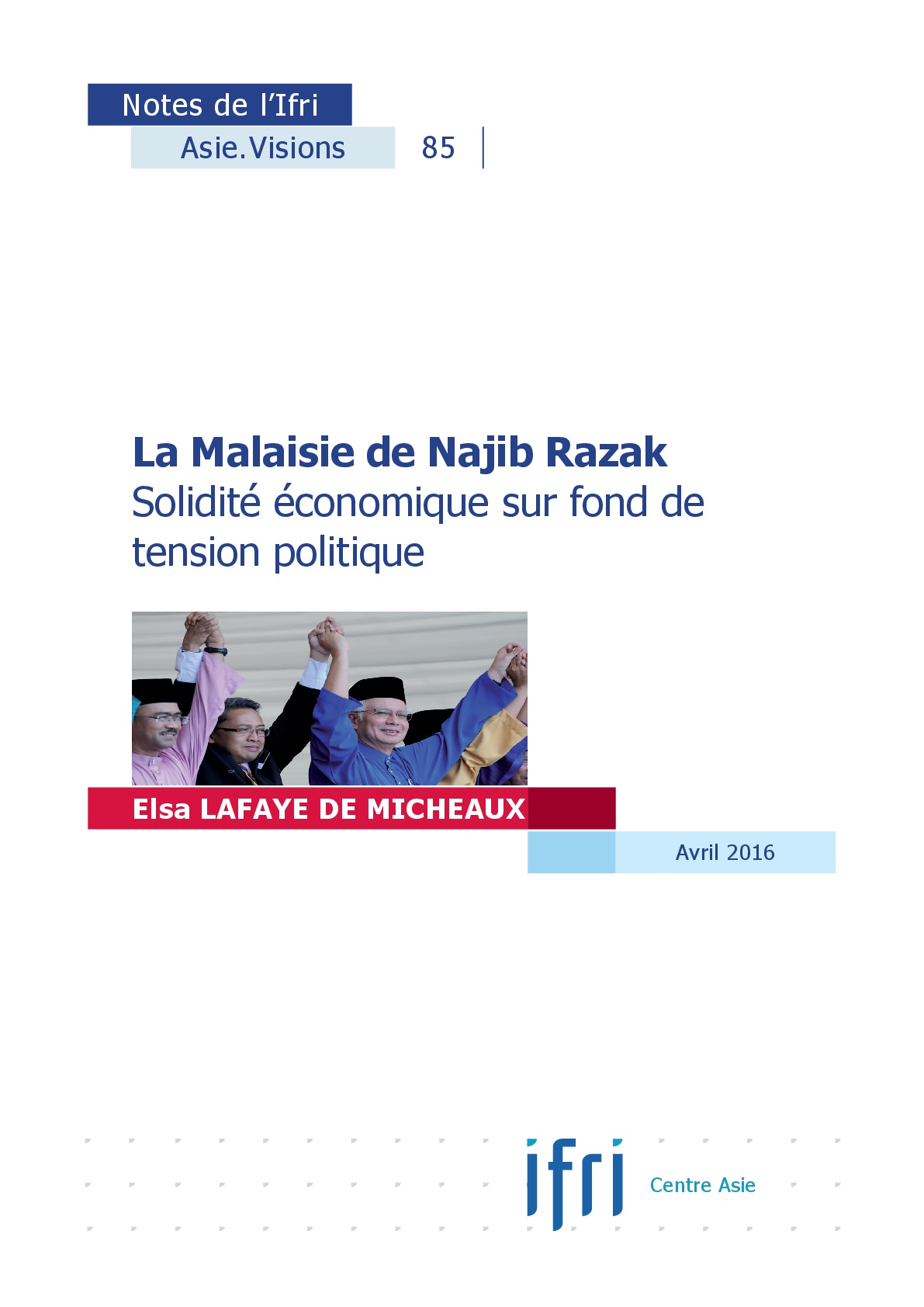Najib Razak’s Malaysia: A solid economy on a foundation of political tension

Najib Razak began his term as Prime Minister of Malaysia in 2009 amidst a severe global economic crisis, concern over spiraling public debt and fears the country would fall into the ominous “middle income trap”.
Uncertainties abounded over the direction of the national economy, and in particular its capacity to face challenges associated with a significant opening-up and the strong power of the state, which itself was highly dependent on oil rents. But thanks to China, which has become Malaysia’s first trading partner, growth rebounded in 2010.
Accompanying the launch of the tenth five year plan, the government introduced a new economic model from 2011 and embarked upon a set of economic and bureaucratic reforms (Economic Transformation Program 2011-2020) in order to bring Malaysia up to the rank a fully developed country by 2020. Najib Razak also announced the implementation of a post-racial social policy (1Malaysia) and important reforms in the field of freedoms and fundamental rights.
But 2013 marked a turning point in the field of human rights, democracy and national harmony in this multi-ethnic and multi-religious country with a Muslim majority. Following the thirteenth general elections, the Barisan National coalition dominated by Najib’s Malay party (United Malaysian National Organization - UMNO) managed to hold on to power thanks to an ultra-favorable mapping of electoral districts, while the opposition won 51 % of the popular vote. In this tense political context, structural reforms would be pursued, leading to an economic consolidation and a rebalancing in terms of partners, industrial sectors, investments and role of domestic demand compared to external demand. However, political and democratic opening would be stopped. The financial scandal 1MDB, revealed on the international scene by the Wall Street Journal in the summer of 2015, led Najib Razak to harden his stance and pursue unprecedented political tightening in order to reassert his authority. If the national economy seems to be put on the right track and able to withstand to the drop in the oil prices and to the Chinese economic slowdown, parliamentary democracy and the political and social climate have been considerably degraded compared to the term of Najib’s predecessor, Abdullah Badawi.
Related centers and programs
Discover our other research centers and programsFind out more
Discover all our analysesJapan’s Takaichi Landslide: A New Face of Power
Prime Minister Sanae Takaichi has turned her exceptional popularity into a historic political victory. The snap elections of February 8 delivered an overwhelming majority for the Liberal Democratic Party (LDP), driven by strong support from young voters, drawn to her iconoclastic and dynamic image, and from conservative voters reassured by her vision of national assertiveness. This popularity lays the foundation for an ambitious strategy on both the domestic and international fronts.
The U.S. Policy Toward Taiwan Beyond Donald Trump: Mapping the American Stakeholders of U.S.-Taiwan Relations
Donald Trump’s return to the White House reintroduced acute uncertainty into the security commitment of the United States (U.S.) to Taiwan. Unlike President Joe Biden, who repeatedly stated the determination to defend Taiwan, President Trump refrains from commenting on the hypothetical U.S. response in the context of a cross-Strait crisis.

China’s Strategy Toward Pacific Island countries: Countering Taiwan and Western Influence
Over the past decade, China has deployed a diplomatic strategy toward the Pacific Island Countries (PICs). This strategy pursues two main objectives: countering Taiwan's diplomatic influence in the region and countering the influence of liberal democracies in what Beijing refers to as the "Global South."

Opening up the G7 to South Korea to Address Contemporary Global Challenges
The G7’s global influence has diminished as powers like China reshape international governance through initiatives such as BRICS and the Shanghai Cooperation Organisation (SCO). With the G7 now representing just 10 per cent of the world’s population and 28 per cent of global GDP, its relevance is increasingly questioned.









